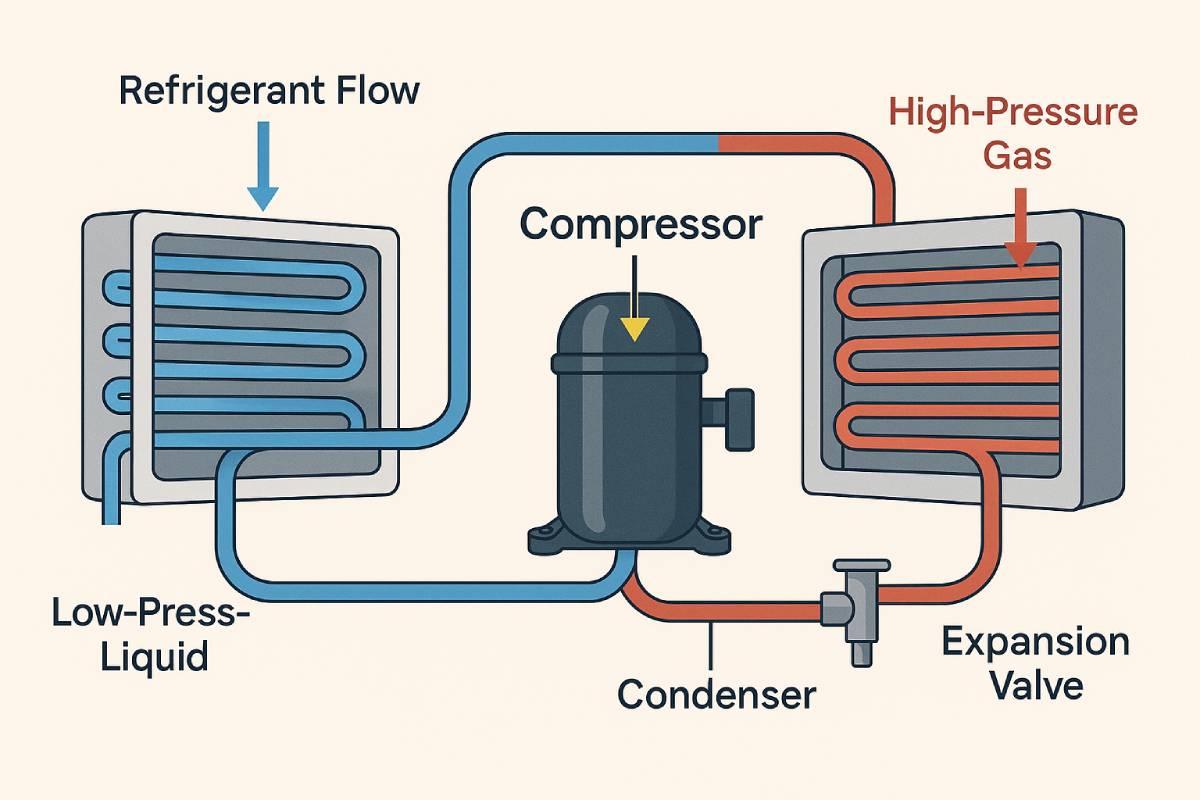When you think of staying cool during the summer months, your air conditioner likely comes to mind. Have you ever stopped to consider what actually makes it work? At the heart of your cooling system lies the compressor—a component that plays a crucial role in keeping your home comfortable.
Understanding its function can help you recognize when something’s wrong and why timely maintenance or replacement is so important.
What Does the Compressor Do?
The compressor is often referred to as the “heart” of your air conditioning system, and for good reason. Its job is to circulate refrigerant through the system, transforming it from a low-pressure gas into a high-pressure gas. The pressurized refrigerant subsequently flows through the condenser coils, where it expels heat and cools off. After that, it moves through the expansion valve and enters the evaporator coils, where it takes in heat from the air inside your home.
Without the compressor, the refrigerant wouldn’t be able to move, and the entire cooling cycle would come to a halt. This means your air conditioner wouldn’t be able to remove heat from your home, essentially rendering it useless.
Signs Your Compressor May Be Failing
Because the compressor is such a vital component, it’s important to be aware of warning signs that something might be wrong. Some of the most common indicators include:
- Warm air blowing from vents: If your AC is on but not cooling effectively, the compressor may be struggling or failing.
- Loud noises: Banging, clanking, or humming sounds could suggest mechanical issues inside the compressor.
- Frequent circuit breaker trips: Compressors that overheat can cause your system to shut down for safety reasons.
- Reduced airflow or pressure: Poor compressor performance can affect the efficiency of air delivery throughout your home.
If you’re experiencing any of these symptoms, it may be time to have your compressor inspected or replaced. Homeowners seeking ac replacement lakewood colorado often do so after noticing a gradual or sudden decline in cooling efficiency.
Why Professional Help Matters
Handling the replacement or repair of a compressor is not an appropriate job for those who enjoy DIY projects. It requires technical expertise, specialized tools, and a comprehensive knowledge of HVAC systems. Hiring a certified technician ensures that the work is done safely, complies with industry standards, and restores your system to peak performance.
In some cases, especially with older systems, it could be more cost-effective to replace the entire air conditioning unit instead of just the compressor. A qualified technician can help you weigh the pros and cons based on the age, condition, and energy efficiency of your existing unit.
Maintaining Your Cooling System
Consistent upkeep is the most effective approach to prolong the lifespan of your compressor and prevent unforeseen failures. Conducting yearly evaluations, replacing air filters, and ensuring the outdoor unit is clear of obstructions can significantly contribute to the seamless operation of your system. Most importantly, pay attention to initial warning signs—what begins as a small problem can escalate into a substantial expense if neglected.
By understanding the function of the compressor and remaining proactive in its maintenance, you can ensure that your cooling system remains dependable for many years ahead.



















